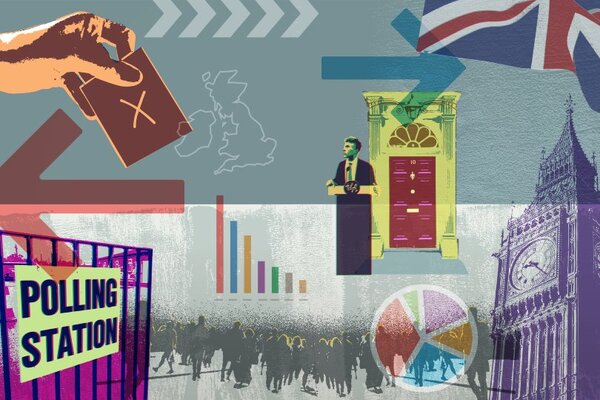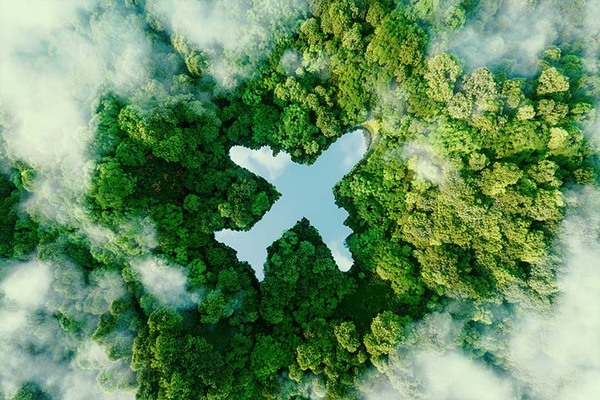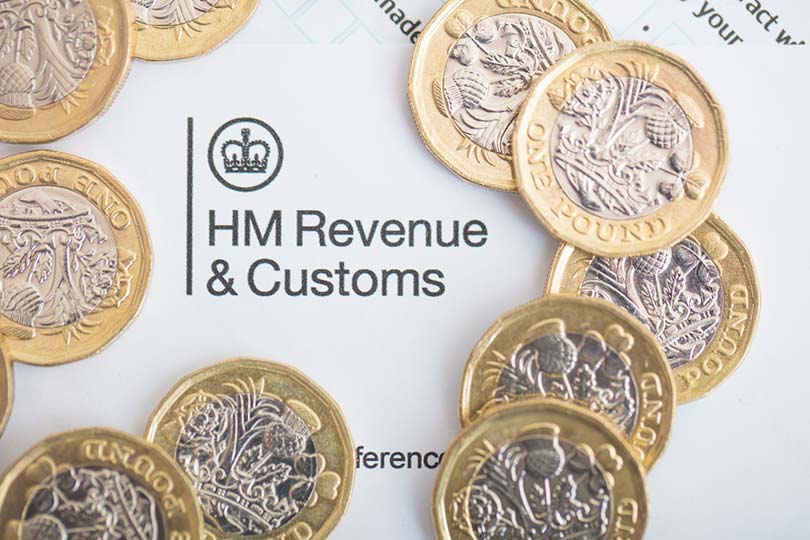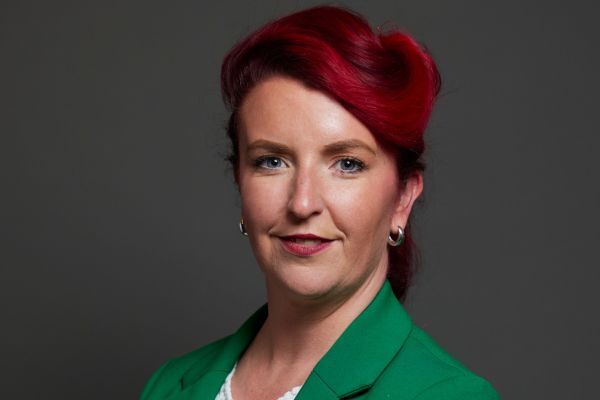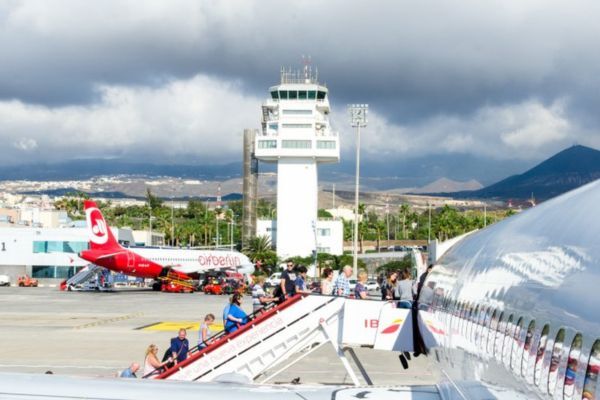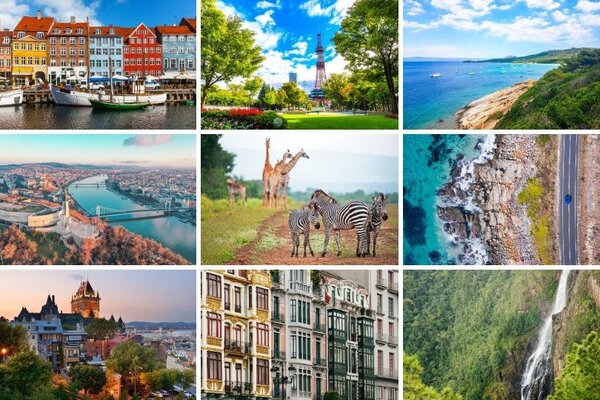Louise Haigh, tax hikes and the 'B' word – seven takeaways from Abta Travel Matters
 Sophie Griffiths
Sophie GriffithsLabour’s approach to travel, ongoing Brexit frustrations and the industry’s response to the climate crisis took centre stage at Abta’s latest Travel Matters conference in London this week (Tuesday 3 December).
Nearly 10 years on from the referendum, Brexit continues to have wide-reaching implications for travel and how the country is governed. But could the new(ish) Labout government take a different approach to the EU? And if so, what might this mean for the travel industry?
Meanwhile, the conference was interrupted by a protest as a Peta activist took to the stage to demand Tui stop selling marine parks. But are the actions of these animal rights protesters actually having an impact?
Here are TTG’s key takeaways from the event.
Travel’s carbon footprint – and what to do about it
Intrepid general manager UK and Ireland Hazel McGuire kicked off the event with a frank acknowledgement of travel’s contribution to the climate crisis.
“We’re entering a new era of conscious capitalism,” she told delegates. “The biggest challenge facing us is the climate crisis. This is not a future problem; this is a now problem. And we have to acknowledge that we as an industry contribute to the climate crisis – 8% of global emissions come from travel and tourism industries.”
Aviation minister Mike Kane also offered a refreshing acknowledgment of the need for urgent action, and insisted tackling the climate crisis remained one of government’s top priorities.
“The climate crisis is the promise, it is real, and we have to look for ways to mitigate it. We’re committed to delivering green transport in the sky, and on water, supporting the mission to transport Britain into a clean energy superpower,” he stressed. “Thanks to the Sustainable Aviation Fuel mandate, 10% of UK's aviation fuel method will be from a sustainable source by 2030, rising to 20% by 2040.”
Kane also noted the work needing to be done in the cruise sector. “Over £200 million has been invested in more than 150 clean maritime projects through the UK shore programme.
“Half of emissions in maritime, particularly in the cruise industry, actually take place where the ship is berth in dock, and that is the low hanging fruit that we can begin to tackle.”
The climate crisis was also referenced as one of the top forces shaping the consumer in today’s society in a session by Danielle Rawson, director of travel and aviation advisory at Deloitte.
“2024 was the hottest year on record, 2023 was the hottest summer. Europe is warming up twice as fast as the global average. And we're already seeing consumers respond to this – with extreme weather events, we’re seeing lots of tourists not wanting to travel to southern Europe in the summer. We've seen the growth of tourism, travelling to colder climates, slow travel, volunteerism, and of course the rise of state.”
Outbound travel contributing more than ever to the UK economy
Overseas travel generated nearly £52 billion for the UK economy last year, exceeding pre-Covid levels. The latest statistics were revealed by Abta chief executive Mark Tanzer as he estimated outbound travel now accounts for some £51.6 billion in Gross Value Added (GVA) to the UK economy – the value of goods and services produced by the sector after deducting input costs.
He also revealed some 818,000 people are employed in the industry via the extended supply chain in the UK.
However, Tanzer warned that while the picture was optimistic, Abta members were “by no means out of the woods yet”.
Tax, tax and more tax – are travel firms being stifled by financial pressures?
“Many still have balance sheets with a heavy debt load, and the National Insurance and Minimum Wage increases recently announced in the budget will put acute pressure on already thin margins,” Tanzer warned as he cautioned against heavier taxes on travel.
“What we must avoid is a layering of taxes that drives the costs of holidays beyond the reach of our customers.
"We have already had a 14% increase in Air Passenger Duty on short-haul economy flights announced in the recent budget.
“We must resist successive environmental taxes at the UK and EU level that throttle demand and restrict travel’s ability to grow and contribute economically.”
The skills gap (and what the government plans to do about it)
For the aviation minister, who’s constituency includes Manchester airport, the job opportunities presented by travel is an issue close to home.
“I've seen first-hand the opportunities the travel industry delivers,” Mike Kane told delegates. “One of my top priorities is ensuring that aviation and maritime have a diverse and inclusive pipeline of talent.”
He insisted the chancellor’s Budget announcements around apprentices – with wage increases and targeted industry investments – would offer greater flexibility to employers and learners “to meet the needs of the next decade”.
The great Brexit ‘reset’ – will Labour restrengthen ties with the EU?
As ever, the B word – and the myriad ways it continues to harm travel and the UK’s wider economy – was mentioned frequently. The difference now is that there’s a new government in charge, and they seem to have a much warmer attitude to our European neighbours.
“As we tackle the challenges and seize the opportunities ahead, strong relationships with our international partners will be essential,” Kane said. “Government continues to engage with EU as we reset our relationship with the member states and the industry to prepare for the entry and exit system.
“We are working to strengthen security and streamline immigration systems through electronic travel and mobilisation, supporting smoother travel for passengers and smoother operations for businesses.”
Louise Haigh – has Keir Starmer set a dangerous precedent?
Sonia Sodha, chief leader writer and columnist at The Observer, offered an interesting take on the resignation of former transport secretary Louise Haigh, insisting prime minister Keir Starmer had taken too “harsh” a position.
“Unless there's something we don't know that hasn't emerged in the public domain yet around what happened... I think it was extremely harsh to force Louise Haigh to resign. I think it was a minor offence, it sounds like she had very bad legal advice, and it happened in her early 20s. It's a token spent conviction, there's no custodial element to it. It's basically as little as the magistrates could give her.”
Sodha questioned the message it sends to society, pointing out: “If we believe in redemption, are we saying that nobody who's ever had any run-in with the criminal justice system before can ever serve in government? For me, that's too harsh, and it sends a wrong message.”
She said Starmer had clearly felt under pressure, having suggested in the run-up to the election that Labour was a ‘clean-cut party’ and very different to the scandal-hit Conservatives. “But for me, if I was him, loyalty to one of the members of my team who had told me about something would have been more important.”
Animal protesters storm the stage – again. But has Tui, and Abta, got the message?
A protestor from Peta (People for the Ethical Treatment of Animals) took to the stage during a panel discussion featuring Tui UK and Ireland’s head of public affairs Nathan Stower.
“Tui, you are one of the last remaining travel providers in the UK still profiting from this cruelty,” shouted the Peta protester, who held up a banner that read: “Orcas matter! Drop marine parks.”
“Please do the right thing – stand up for the animals, stand up for the orcas, the whales and the dolphins that are still suffering in captivity right now," the protestor added.
She proceeded to stand on stage with her sign as the panel’s conversation continued, before being removed by security. The subject of the protest was not discussed by panellists.
Sign up for weekday travel news and analysis straight to your inbox

Sophie Griffiths
Supplier Directory
Find contacts for 260+ travel suppliers. Type name, company or destination.
